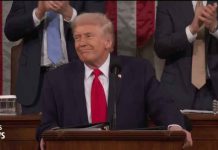
Paramount Global and Donald Trump are on the brink of mediation over a $20 billion lawsuit that might affect an $8 billion merger and an FCC probe.
Key Takeaways
- Paramount and Donald Trump are starting mediation over a $20 billion lawsuit involving CBS ’60 Minutes’ and Kamala Harris.
- The lawsuit has implications on Paramount’s merger with Skydance Media, pending FCC approval.
- The FCC is investigating the lawsuit’s claims of ‘news distortion’ in the ’60 Minutes’ interview.
- CBS insists their editing is protected by the First Amendment, filing to dismiss the lawsuit.
- Completion of mediation is mandated by December 20, 2025.
The Legal Battle
Paramount Global and Donald Trump are set to begin the mediation process concerning a hefty $20 billion lawsuit. This stems from a CBS ’60 Minutes’ interview with Kamala Harris, which Trump alleges was deceptively edited to mislead viewers. The legal clash emerges as CBS faces scrutiny from Trump’s camp, who expanded the lawsuit to include federal allegations under the Lanham Act for deceptive practices.
CBS argues that their editorial discretion is protected under the First Amendment. In response, they filed for a dismissal of the lawsuit, citing press freedom. Paramount has echoed these sentiments, emphasizing the rule of law in editorial decisions. Some within Paramount believe that resolving the lawsuit could prevent a lengthy court battle detrimental to their interests.
🚨🇺🇸 CBS MOVES TO DISMISS TRUMP’S $20B LAWSUIT OVER ‘60 MINUTES’ INTERVIEW
CBS has filed a motion to dismiss Trump’s $20 billion lawsuit over its Kamala Harris interview, calling it an “affront to the First Amendment” and arguing it has no legal basis.
Trump alleges the segment… https://t.co/LQiBP2lL31 pic.twitter.com/smeoLUq1Gr
— Mario Nawfal (@MarioNawfal) March 7, 2025
FCC’s Role in the Mediation
The Federal Communications Commission (FCC) is simultaneously conducting a review triggered by Trump’s lawsuit, investigating the alleged ‘news distortion’ during the broadcast. Paramount’s controlling shareholder, Shari Redstone, has urged mediation to ease the path for the approval of their $8 billion merger with Skydance Media. The FCC’s decision could significantly impact the merger proceedings.
“The Complaint filed against CBS for ‘news distortion’ envisions a less free world in which the federal government becomes a roving censor — one that second guesses and even punishes specific editorial decisions that are an essential part of producing news programming,” CBS said.
Paramount has reaffirmed that their legal strategy is separate from merger activities, with a spokesperson clarifying it is distinct from the merger’s FCC approval process. Nevertheless, the merger’s approval hinges on the FCC’s overall clearance, raising stakes for both parties involved.
Possible Outcomes and Deadlines
This mediation’s outcome could set significant precedents for media law and freedom of the press. A Texas federal court has set a firm deadline, mandating all mediation processes to conclude by December 20, 2025. Both parties are working towards a resolution that prevents long-term reputational harm on both sides.
Meanwhile, employees at ’60 Minutes’ express concern over the potential damaging effects that a settlement might have on CBS News’s reputation. Executive producer Bill Owens has stated no apologies would be part of any agreement made. As negotiations continue, all eyes remain on how this will influence the media landscape and corporations navigating similar disputes.


